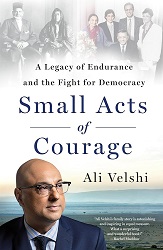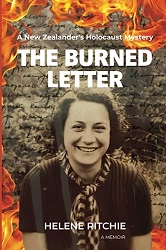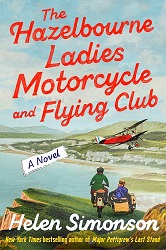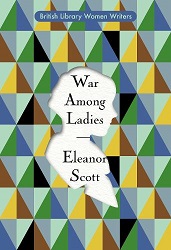I long ago lost count of the number of bloggers who I’ve seen rave about the novels of Susanna Kearsley. I know Eva, Marg, Teresa, Jane, Danielle, and Lyn have all enjoyed her works. With such stellar recommendations from such trusted sources, I knew I had to try her for myself. Luckily, because Kearsley is Canadian and if there is one thing Canadian libraries love it is stocking books by home-grown authors, I had no trouble tracking down her books and I am pleased to say that, having now read four of them, I can completely understand what all the fuss is about. Kearsley writes beautifully and has that most coveted gift of being able to draw a reader in, quickly and completely. I, who am usually am to put a book down in the middle of a sentence never mind a chapter, found myself whispering “just one more page” and “just one more chapter” to myself as I read late into the night.
Of course, not all books are created equal. While I loved The Rose Garden, I only liked Mariana. I enjoyed The Winter Sea but I adored The Shadowy Horses. Still, each and every one had its good points (sometimes extremely good) and I enjoyed reading them all.
Counting them down in order of preference, here are my thoughts:
 4. Mariana (1994)
4. Mariana (1994)
Mariana was the first of Kearsley’s books that I read and I really do think it was a perfect introduction. I didn’t adore it but it certainly eases the uninitiated reader into Kearsley’s realm, introducing you to her interest in the supernatural and captivating you with her skilful, easy writing style.
Shortly after Julia Beckett moves in Greywethers, a sixteenth century house she’s been drawn to since childhood, she begins having alarming hallucinations. She suddenly finds herself slipping into the seventeenth century, where she is Mariana, a young woman caught up in a passionate affair with the local squire. Of course, the logical deduction here is that Julia is actually Mariana reincarnated. No big deal. (This is the point where I warn all my fellow sceptics that suspension of disbelief is essential for the enjoyment Kearsley’s work.) The memories come on unpredictably and hold Julia in a trance – in them, she is Mariana and remembers nothing of her 20th Century life. But when she comes out of them, Julia remembers everything and can’t help but wonder if the attractive current squire, Geoff, is the reincarnation of Mariana’s lover, Richard.
To me, it seemed obvious from his first introduction who Julia’s romantic match was going to be (good rule of thumb: writer’s rarely waste that much time and detail on secondary characters who are going to languish in the background), which rather spoiled some of the suspense I think I was supposed to feel later on. This book actually combined a number of things I loathe: fated lovers, reincarnation, and poorly-drawn, red-herring love interests, and yet, somehow, in Kearsley’s hands I enjoyed it. I came away not particularly impressed by the plot or characters but very impressed by Kearsley’s skill as a storyteller and desperate to read more of her work.
 3. The Winter Sea (2008)
3. The Winter Sea (2008)
Carrie McClelland is a best-selling historical novelist who has come to Scotland to research her new book. Her intent is to focus on the attempted Jacobite uprising of 1708 and she chooses to centre her story around nearby Slains Castle, which belonged to Jacobite supporters. When her editor encourages Carrie to add a female character, Carrie draws on her own family history for a name, inserting her ancestor Sophia into the tale. But once Carrie begins writing about Sophia, the story takes on a life of its own. Carrie starts having unusually vivid dreams about her characters, full of details and people who never appeared in her research. Confused, she decides to fact check these imaginings, only to find that her ancestor Sophia had in fact lived in the castle before the uprising and that all the details that Carrie dreamt of or which came to her while she was writing are true too. As Carrie delves into Sophia’s story, she is troubled by the question of how she can know so much about a distant ancestor of whom the family barely had any documentation. And, as she discovers Sophia’s passion for the outlaw John Moray, she can’t help but wonder what happened to him, knowing that Sophia would go on to marry a man named McClelland…
Jacobites are always a romantic topic and I am always happy to read about them. The story shifts back and forth between Carrie’s life and the passages from her novel detailing Sophia’s life at Slains, including her romance with John Moray. At first, I was far more concerned with Carrie’s life and found the snippets from her novel intrusive but Sophia’s story soon takes possession of the reader’s attention and it is Carrie’s sections that end up feeling superfluous.
The story is intriguing but never quite as absorbing as it really should have been. Kearsley clumsily tries to create parallels between Carrie and Sophia’s lives, a technique that completely backfires. While it made sense for Sophia, given John Moray’s status as an outlaw, to keep her lover secret, it makes absolutely no sense for Carrie to do the same. The unnecessary slyness exhibited by Carrie and her otherwise unobjectionable lover reflected poorly on them both and soured me against them.
But my main issue with this story has to be the obvious, the absurd reason why Carrie knows so many details about Sophia’s life: genetic memory. That is, the idea that we inherit our ancestors’ memories along with their genetic traits: I get grandmama’s hands AND great-great-great-grandpapa’s memories. With all of Kearsley’s books, I kept having to remind myself to let go and just accept the story, however absurd I thought the paranormal element, but this was a step too far for me.
 2. The Rose Garden (2011)
2. The Rose Garden (2011)
This was the book every single Kearsley fan told me I had to read. I had been promised something impressive but, picking it up just after Mariana, I wasn’t quite sure. Having read enough reviews by then to have a rough idea of the plot, I rather expected a workmanlike romance with perhaps a touch of heavy handed time travel. Instead, I was presented with this enjoyable book.
When Eva’s beloved sister Katrina dies, she returns to the house in Cornwall where they spent their childhood summers to scatter her ashes. Once there, she connects with her old friends and meets new but much older ones when she finds herself occasionally and uncontrollably slipping through time to the 18th Century. As you do. There, she meets Daniel Butler, who kindly and surprisingly calmly accepts her presence when she appears and with whom, unsurprisingly, Eva soon finds herself falling in love.
The difficulties of building and then maintaining a relationship across the centuries, particularly given the unpredictability of Eva’s movements and the danger posed by Daniel’s smuggling activities – and his Jacobite sympathies –, are intriguingly considered. Eva has no control over when she moves between her time to Daniel’s, though she does come to realise that her movement is tied to the house when Daniel lived in the 18th Century and where her friends the Hallets live in the 21st: only when she is in or near it can she travel. But as their relationship intensifies, Daniel’s situation becomes more and more dangerous in England. Eva can only travel between the centuries when she is near the house – if Daniel has to leave, she will never see him again, and if Eva leaves with Daniel, she will never get back to her own time.
Kearsley misses nothing. All of the details in her descriptions of people and places are absolutely and absorbingly perfect from the opening sentence. No one, even the supporting characters, is poorly drawn. They behave just as they ought, given what we know of them and of human nature, and Eva and Daniel, the time-crossed lovers, are wonderful. The way they relate to one another, the way their acquaintance progresses, makes their growing attachment seem natural in the most unnatural circumstance imaginable, given that Eva is from the 21st Century while Daniel lives in the early 1700s.
The Cornish setting is wonderfully evoked and made me desperate to visit, though I did find Eva’s description of it as “wild” a bit amusing, especially since Eva is supposed to have grown up in British Columbia, where it is not unheard of for bears and cougars to find their way into the cities, never mind what you’ll find in the legitimately wild remainder of the province. There is some wildness to any place by the sea, obviously, but I can’t help it: to me, Cornwall seems pretty tame.
 1. The Shadowy Horses (1997)
1. The Shadowy Horses (1997)
As much as I enjoyed The Rose Garden, my fondness for it pales in comparison to my obsession with The Shadowy Horses. I adored this book. It had just the perfect level of the paranormal to make me completely comfortable, which, I have to admit, is the main place the other books fell down. I find reincarnation ridiculous, genetic memory absurd and time travel intriguing but far-fetched. A simple ghost and a boy with second sight, on the other hand, seemed humble and common enough to be believable. It also helped that the ghost was particularly unthreatening, being very fond and protective of our heroine and on friendly terms with a local dog.
When Verity Grey receives the call to come to the Rosehill estate in Eyemouth, Scotland for work on a mysterious archaeological dig, she can’t resist. But this dig is not like any she has ever worked on before. The aged and eccentric Peter Quinnell is determined to find evidence that the Ninth Legion of Rome was there, his only evidence coming not from scientific or historical sources but from a small boy with second sight who claims to communicate with the ghost of a Roman legionnaire who guards his comrades’ final resting place. As the dig begins yielding finds, the archaeologists, particularly Verity and historian David Fortune, begin piecing together what they’ve found – but what does it all mean?
First of all, let us get one thing perfectly clear: David Fortune is perfect. He is, without a doubt, the most appealing romantic lead I have come across in ages. If Kearsley had consulted my personal list of traits that a romantic hero should possess, she would have found David Fortune reflected there. He is tall with black, curly hair; he has blue eyes; he is Scottish; he is kind and polite; he lectures at the University of Edinburgh…he is, in short, perfect in every way. The plot does not revolve around his and Verity’s romance, which is perhaps the most brilliant choice in this book, and it plays out with a minimum of fuss. He and Verity both have fascinating work to do and it is delightful when they are together but not of major note when they are not. Unlike so many female characters, Verity does not spend all her time moping about when her love interest leaves the room: she has exciting work to do, not to mention ghosts to cross-examine, and it absorbs her attention. David and Verity treat each other well, with both respect and affection, and sadly that is remarkable – far too few books from any genre show healthy relationships like this.
Unlike Kearsley’s other books, where the heroine is the one experiencing paranormal phenomena first had, Verity is only a witness, which I think is a very clever choice. Verity sees extraordinary things but, unlike young Robbie, cannot see the ghost or hear him. Like the reader, she has to trust what she is told and suspend her disbelief, making her instantly more relatable than any of the other characters in the books reviewed above.
* * *
Kearsley’s books are fun. Whatever quibbles I might have had with some of them, that never prevented me from enjoying the reading experience and that, after all, is the most important thing. And I will certainly be rereading The Shadowy Horses – I cannot wait to get my hands on my own copy.
This post contains affiliate links from Book Depository, an online book retailer with free international shipping. If you buy via these links it means I receive a small commission (at no extra cost to you).
Read Full Post »
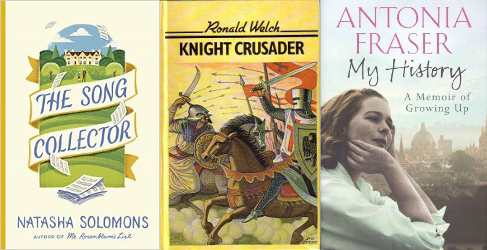 10. The Song Collector (2015) – Natasha Solomons
10. The Song Collector (2015) – Natasha Solomons 7. Iris Origo (2000) – Caroline Moorehead
7. Iris Origo (2000) – Caroline Moorehead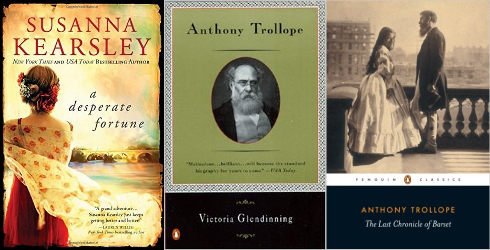 4. A Desperate Fortune (2015) – Susanna Kearsley
4. A Desperate Fortune (2015) – Susanna Kearsley 1. Sylvia Townsend Warner’s Letters (1982) edited by William Maxwell
1. Sylvia Townsend Warner’s Letters (1982) edited by William Maxwell






